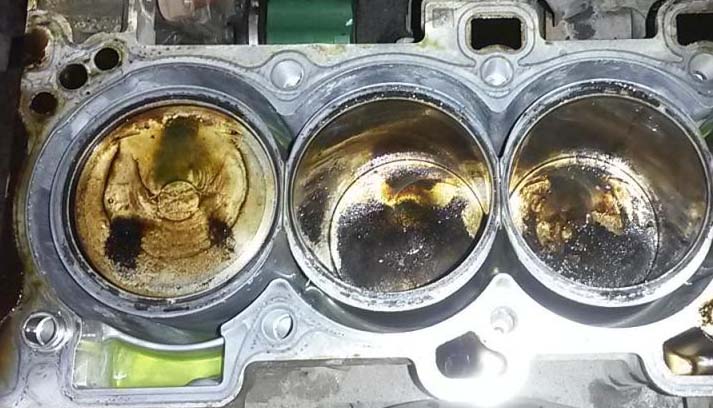Why Does A Head Gasket Blow

The head gasket plays a pivotal role by creating a seal between the engine block and the cylinder head. This demands that the head gasket effectively seals both highly heated, high-pressure combustion gases and engine coolant, which can span from chilly ambient temperatures to the standard operational temperature of the engine. Given the wide spectrum of temperatures and the substantial surface area involved, it's not uncommon for head gaskets to develop leaks over time. Such occurrences can arise regardless of your vehicle's make, model, or the type of head gasket employed.
Overheating:
The most prevalent cause of a blown head gasket is overheating. Often, the protective layer of the head gasket around the cylinders can become compromised. When this transpires, the seal is compromised, resulting in diminished engine compression, coolant leakage, and erosion of the gasket. Before replacing the gasket, it is imperative to ascertain the underlying cause of overheating. Potential culprits include coolant leaks within the engine, hoses, radiator, or water pump, which necessitate detection and rectification. Overheating might also be attributed to malfunctioning cooling fans or a clogged radiator, which must be addressed to prevent recurrence even after replacement.
Installation Errors:
Mistakes or negligence during installation can lead to issues. Although not uncommon, such errors can have adverse consequences. Correct installation demands precise tightening of head bolts in the appropriate sequence and to the specified torque. The threads of the bolts should remain undamaged and unstressed. Moreover, the surfaces of the cylinder head and engine block should be impeccably clean, smooth, and level. Any lapses in these aspects, individually or in combination, can contribute to a blown head gasket.
Hot Spots:
Certain engines are susceptible to the formation of hot spots amidst the central cylinders within the cylinder head. However, aftermarket head gaskets designed for these engines incorporate reinforcements to mitigate the likelihood of a blown head gasket. Nevertheless, if you own an older vehicle, a hot spot may be a causative factor, especially if a reinforced head gasket has not been employed as a replacement for an aged one.
Pre-Ignition Issues:
Pre-ignition complications can also trigger this problem. Pre-ignition entails the presence of a localized high-temperature area within the combustion chamber, leading to the ignition of fuel prior to the spark plug's intended firing. Detonation is another potential factor, occurring when the spark timing is excessively advanced or the fuel-air mixture is inadequately rich. These conditions promote the accumulation of carbon deposits, ultimately eroding and causing the head gasket to fail.
Defective Head Gasket:
In certain scenarios, the original head gasket design for a specific vehicle might be inherently flawed, contributing to a blown head gasket over time. Substituting it with an effectively designed head gasket can preempt such issues entirely.
Read more related content below-
Dangers of a Blown Head Gasket
Repair or Replacement of a Blown Head Gasket. What's Worth?